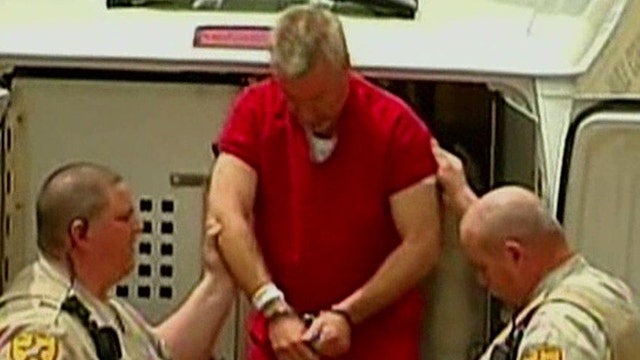CHICAGO – Drew Peterson's defense lawyers called an ethics teacher and even trial spectator to the stand during an offbeat hearing Tuesday as they sought to persuade a judge to grant the former suburban Chicago police officer a new murder trial.
The spectacle was in many ways a continuation of public feud between Peterson's current legal team and his former lead attorney. The current lawyers claim former lead trial counsel Joel Brodsky botched the 2012 trial at which Peterson was found guilty of killing his third wife.
If Will County Judge Edward Burmila rejects the motion for a retrial, he has said he would move on to Peterson's sentencing.
Peterson, 59, faces a maximum 60-year prison term for murdering Kathleen Savio, who was found dead in her bathtub with a gash on her head. As a convicted felon, he had to enter court Tuesday in blue prison garb and shackles -- a stark contrast from the business suits the then-suspect was allowed to don for his trial.
Among those the defense called to the stand was a law school teacher who testified that Brodsky had violated ethical norms by allegedly signing a contract to split future book and movie proceeds with Peterson years before the case even went to trial.
"It seems that this is over the line," Clifford Scott-Rudnick, a professor at Chicago's John Marshall Law School told the judge.
Cutting business deals with clients, he said, raises the danger that lawyers will act in their own business interest rather than in their client's legal interest.
The bitter acrimony between a former and a current attorney is the latest twist in the peculiar saga of the former Bolingbrook police sergeant, who gained notoriety after his much younger fourth wife, Stacy Peterson, vanished in 2007.
The feud escalated earlier this month when Brodsky filed a defamation lawsuit against colleague-turned-nemesis Steve Greenberg, which claims Greenberg became "irrationally fixated and obsessed with destroying Brodsky" and held Brodsky up to "great public scorn, hatred, contempt (and) ridicule."
In an open letter to Brodsky in September, Greenberg accused him of "single-handedly" losing the trial, adding he "wafted the greatest case by ignorance, obduracy and ineptitude."
As Tuesday's hearing began, Burmila said he was obliged to ask Peterson directly if he had full confidence in the current attorneys sitting next him, including Greenberg.
"Yes, your honor," Peterson promptly replied.
Apparently satisfied with that answer, Burmila said proceedings could continue with Greenberg acting as Peterson's lead attorney.
The dispute is in sharp contrast to the beginning of Peterson's 2012 trial, the limelight-seeking defense team faced the media horde together. Several times, they joked that Stacy Peterson -- who authorities presume is dead but whose body was never found -- could show up any day to take the stand.
Among the accusations against Brodsky, chief is that he was so bent on publicizing himself that he pressed Peterson into a damaging pretrial media blitz.
One decision that backfired at trial was calling divorce lawyer Harry Smith to be a witness for the defense. Greenberg says that was Brodsky's decision; Brodsky says all the defense lawyers agreed on it.
Under questioning by Brodsky, Smith told jurors Stacy Peterson had asked him a question before she vanished: Could she squeeze more money out of her husband in divorce proceedings if she threatened to tell police that he murdered Savio three years earlier?
Brodsky hoped Smith's testimony that Stacy Peterson allegedly sought to extort her husband would dent the credibility of statements she made to others that Drew Peterson threatened to kill her.
Savio's death was initially deemed an accident, a freak slip in the tub. But after Stacy Peterson vanished, Savio's body was re-examined and her death was reclassified as a homicide.
During Smith's testimony, Brodsky repeatedly stressed how Stacy Peterson seemed to sincerely believe her husband had killed Savio. Some jurors later said that Smith's testimony persuaded them to convict Drew Peterson.
Judges rarely grant retrials. When they do, it is usually because an attorney didn't make a certain argument or call a witness who might have exonerated a defendant, explained Kathleen Zellner, another Chicago-area defense attorney.
"It's usually not for something an attorney did but for what they did not do," she said.
But this case has been full of oddities since first making headlines in 2007. Peterson's trial was the first in Illinois history where prosecutors built their case on hearsay, thanks to a new law tailored specifically for the case, dubbed "Drew's Law."


